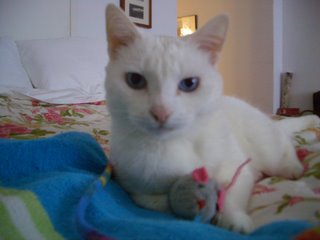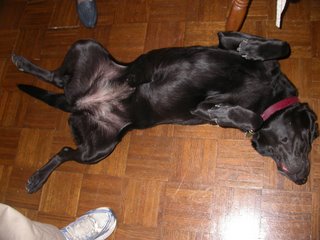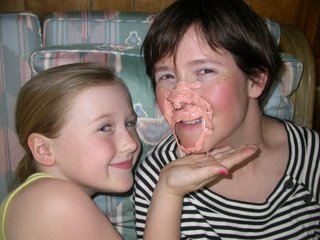 I posted earlier that Nola had been sick but was getting better. It is an understatement to say that I spoke too soon. He continued to get worse and I had to take him to the Emergency Pet Clinic late on Sat night. An emergency pet clinic is basically like an ER for pet, there was a dog that had a gun shot wound, a small dog that had eaten a pencil, a small terrier that had gotten stung by something and his face was about 3 sizes too big for his body, and then there was my friend and I and Nola.
I posted earlier that Nola had been sick but was getting better. It is an understatement to say that I spoke too soon. He continued to get worse and I had to take him to the Emergency Pet Clinic late on Sat night. An emergency pet clinic is basically like an ER for pet, there was a dog that had a gun shot wound, a small dog that had eaten a pencil, a small terrier that had gotten stung by something and his face was about 3 sizes too big for his body, and then there was my friend and I and Nola.He had to be hospitalized that night and he stayed there through the weekend. I picked him up on Monday morning, he was wearing a bright blue cone and he looked like a sad flower, and took him to my regular vet. Since we were sort out of all options they performed surgery on Monday afternoon.
Nola had a piece of bone stuck 2/3 of the way down his intestine and a severe infection. His intestines were beginning to die and his entire system was starting to shut down, but the vet luckily didn't have to remove any thing but the bone.
I have no idea where Nola ate the bone for what kind of bone it was, just that it was a very hard bone, most likely from some mammal.
I finally brought Nola home on Wed and we all went down to my parents for a little rest and Nola recuperated with his best friend Oso.
He had lost a little over 10 pounds in a week and ate only small amounts at first but ,he is doing much better and except for the 6 inch scar and his shaved stomach you would not know that he had surgery.
Of course he got several new toys to help his recovery, a rooster, an octopus and a banana to remind him of his first toy I ever got him. Sometimes I think he gets sick just to get new toys.

Nola's new Octopus

Nola and his toys
 Nola was kind enough to show off his scar
Nola was kind enough to show off his scar In case there was any doubt about his recovery, Nola is still jumping high to catch his rooster.
In case there was any doubt about his recovery, Nola is still jumping high to catch his rooster.














































